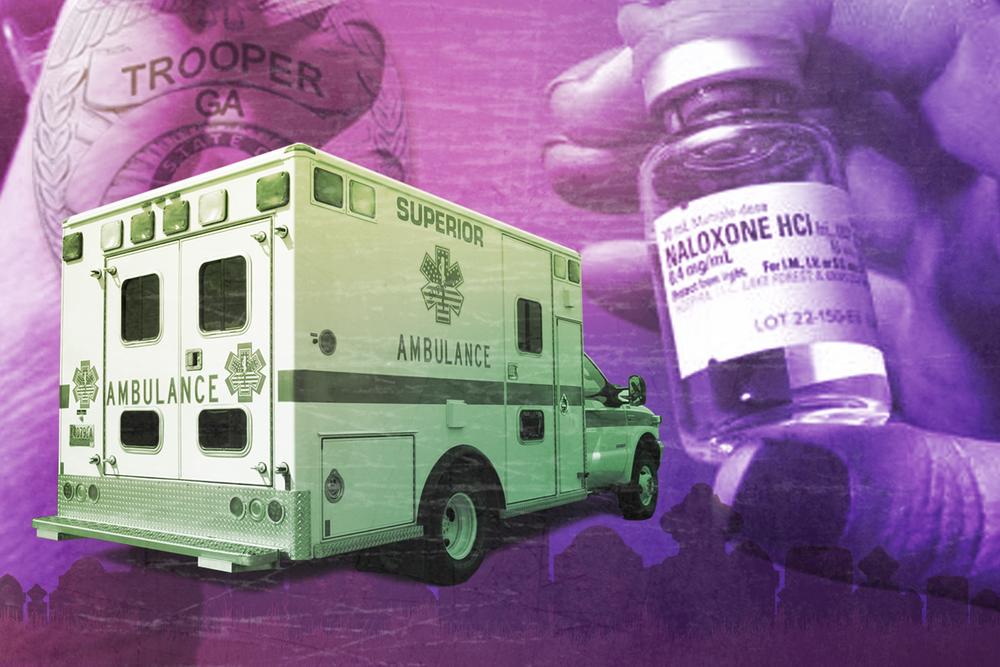Section Branding
Header Content
Opiate Antidote Naloxone New Necessity For Police
Primary Content
New Jersey police detective Eric Price came in contact with fentanyl while doing his job.
“I felt like my body was shutting down,” Price said. “People around me said that I looked really white and lost color, and it just really felt like, I thought I was dying.”
Price appeared in a Department of Justice video that was released to law enforcement agencies in June. It warned officers about protecting themselves from fentanyl. Fellow investigator Dan Kallen also came in contact with the drug.
“I couldn’t breathe. I was very disoriented,” he said. “Everything you did was exaggerated in your mind I guess. It was the most bizarre feeling that I never, ever would want to feel again to be honest with you.”
Back in June, Central Georgia experienced a spate of 33 opiate overdoses in just 48 hours. Five people died. Law enforcement tied the outbreak to a street version of counterfeit Percocet laced with fentanyl. It’s a drug that’s changing the way law enforcement everywhere, including Georgia, does its job.
Captain David Freeland runs the training center for the Bibb County Sherriff’s Office. Over the course of a week, 350 Macon officers were shown how to administer Narcan, a drug that can reverse the effects of an overdose.
“OK we’re going to get started so we can get y’all out of here,” he said. "We’re doing the Narcan training. That’s why you’re down here.”
The Narcan comes in a little green pouch the size of a man’s wallet. Police got one dose in a nasal Narcan injector.
“We’re giving them out to just about everybody that can get a kit,” Freeland said. “We’re going to give some to the jail, some to the courthouse, definitely to the road deputies, investigators like the gang unit and the drug unit who might come in contact with the stuff firsthand.”
Fentanyl is more powerful than morphine and heroin. Breathing or touching just a few particles can kill you.
Dr. Chris Hendry is the Chief Medical Officer with Navicent Health in Macon where 17 of the overdose patients were treated.
“When first responders get on the scene if this powder or tablet, if they touch it with their fingers, they absorb the chemical and have the same effects and end up overdosed on the medication because they’re trying to help the people that have taken it to start with,” Hendry said.
He says wearing gloves and face masks is new for police.
“Sometimes in the heat of the moment when you’re responding and it’s an emergency you know you want to get in on the scene and act as quickly as possible to help the people that need it” he said. “But now you have to make sure you’re protecting yourself as well.”
Tony Brown has been a paramedic for 20 years and runs EMS operations for Navicent. He said in the last few years they’ve seen a steady rise in overdoses, but the June outbreak was sudden and severe.
“It became apparent through conversations with different physicians that this substance was more potent than what we were normally dealing with and that the dosages of Narcan needed to be increased by a good amount,” he said.
And while paramedics carry ample Narcan supplies administered via IV, Captain Freeland said police only have one dose.
“So it’s going to be there for you to use in case you run across somebody that is overdosing on this but it’s also there for your protection,” he said.
But whether they use it to treat themselves or someone in the throes of an overdose is not part of the training. That difficult decision will be left up to police.


